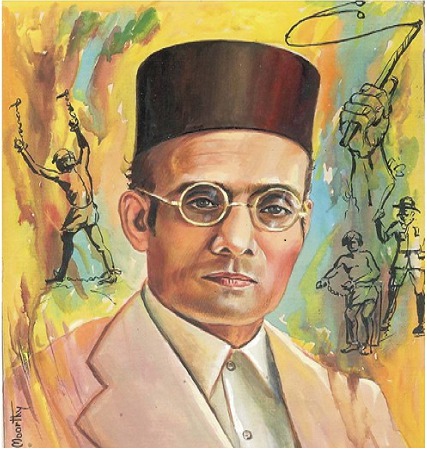
Veer Savarkar's Character
Veer Savarkar remains a pivotal figure in Indian history, celebrated as both a revolutionary and a nationalist. His contributions to the Hindu nationalist ideology of Hindutva significantly impacted India's freedom struggle, highlighting his complex and often controversial legacy. Savarkar's character is an embodiment of intellect and rebellion. Imprisoned in Ratnagiri in 1922, he formulated the concept of Hindutva, establishing the foundations of Hindu nationalism that resonate today.
The prefix "Veer," meaning brave, was a title he embraced, portraying himself as a courageous patriot who made immense sacrifices for the nation. This bravery resonates deeply within the narratives of his life. Beyond his revolutionary spirit, Savarkar was also a prolific poet and writer. His literary works are infused with emotional depth and themes of patriotism, making his poetry an essential aspect of his character and ideology.
Atal Bihari Vajpayee, the esteemed former Prime Minister of India, expressed profound admiration for Savarkar. In one of his stirring poems, Vajpayee captures the essence of Savarkar's character with the powerful lines: "सावरकर माने तेज, सावरकर माने त्याग, सावरकर माने तप।" This translates to "Savarkar means Speed, Savarkar means Sacrifice, and Savarkar means Meditation." Vajpayee's poetry not only celebrates Savarkar's qualities but also reflects a deep respect for him as a true nationalist.
Through his heartfelt words, Vajpayee illuminated the significant impact Savarkar had on the Indian nationalist movement and the enduring legacy he left behind. If you want to explore more about Veer Savarkar's legacy, you can visit the National Archives of India.
Understanding Hindutva with Veer Savarkar's Vision of Indian Identity
)
The concept of Hindutva, developed by Veer Savarkar, is a rich and complex ideology that weaves together cultural, political, and nationalistic dimensions. Savarkar coined the term "Hindutva" in his 1923 pamphlet, "Hindutva: Who is a Hindu?" He articulated Hindutva as an identity based on shared race, culture, and territory, distinguishing it from Hinduism, which he regarded as a religion. Thus, Hindutva becomes a broader cultural and political identity designed to unite all Hindus via common ancestry and historical experiences.
Savarkar delineated three core components of Hindutva: the idea of India as a "Common Nation" (Rashtra) for Hindus, highlighting a collective national identity; "Common Race" (Jati), stressing the importance of a shared ethnic identity among Hindus for national unity; and "Common Culture" (Sanskriti), which he believed should serve as the foundation of Indian identity.
The historical context also significantly influenced Savarkar’s ideology. Living during colonial rule in India, he aimed to foster pride in Hindu heritage and counteract the perceived marginalization of Hindus, largely resulting from British dominance and other religious influences. More than just a cultural identity, Hindutva was a political ideology that sought to advocate for Hindu unity and interests, laying the cornerstone for the Hindu nationalist movement in India.
Savarkar was critical of the secular nature of Indian politics, arguing it often overlooked Hindu interests. He emphasized the necessity of a robust Hindu identity for the nation's growth and survival. In essence, Hindutva, as envisioned by Veer Savarkar, aims to shape Indian identity through Hindu cultural, racial, and national unity and supports a political framework that foregrounds Hindu interests in India's diverse society. For more insights into Hindutva's impact, visit this informative article.
